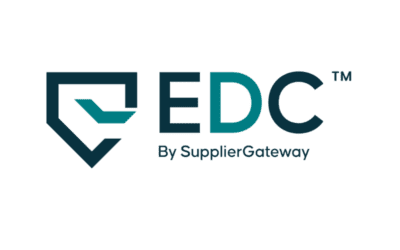Identifying the right supplier may be difficult, and a sizable proportion of procurement teams consider this the most challenging component of their job. Knowing how to find and choose a supplier ensures that the products and services are supplied on time, at a suitable price, and according to your standards if you work with a reliable and trustworthy provider. Your client’s happiness and your company’s image might be damaged if you make a mistake in selecting a supplier.
The capability of your business to supply high-quality products and services at competitive prices may be hampered if your supplier cannot be relied upon or does not produce high-quality items.
A well-designed procurement process will guarantee that the business firm connects with the appropriate supplier. According to a recent study, the procurement outsourcing industry is predicted to reach USD $5.03 billion by 2025. This is a clear indication that the procuring process of identifying suitable suppliers has led to economic growth. Get a piece of that growth by understanding how to choose suppliers.
No. Really…How Do You Choose a Supplier?
This article will walk you through the eight most important actions to take to identify the best potential suppliers for your goods, components, or raw materials.
1. Price
Price is one of the critical factors to consider from a supplier. However, you shouldn’t merely pick a supplier based on their price alone, especially if the purchase is non-commodity items. When it comes to general costs, low-quality products and services may not be the best choice in all cases. Be satisfied that your supplier needs to earn a sufficient profit at the specified price for the company to remain in business.
2. Conduct Market Research
In the digital world, it’s becoming easier to conduct due diligence online and discover information via searches and by reviewing the websites or blogs of the potential suppliers of your products or services.
While not all suppliers have company websites, most have developed a digital presence via networks, virtual stores, and establishing a presence in supplier platforms. You may have to do some exploration in the markets to get the important information you need to help decide about organizations you are thinking about engaging, but this discovery process is vital when choosing a supplier.
3. Ask for Samples/Trials
These are free. However, you may be liable for delivery costs. This will assist you in deciding on the appropriate service provider or manufacturer for your good quality. Your intuition plays a significant role in finding quality items and in choosing a supplier.
However, hands-on analysis of a supplier’s service or product is necessary to ensure that the service or product will fulfill your needs. You may test your goods in the market after finding a dependable supplier to determine whether your clients/buyers are interested. It’s also good to ask for tangible evidence like images, video clips, or detailed information of the facility, products, or services offered.
4. Ascertain Supplier Authorization
When you hire a firm or company for your products or services, be sure the provider has a solid reputation, has been in business for a while, and has no documented problems. They may also include a manufacturing certification stamp from the location, which is an additional plus. For suppliers with unique products but newly in the market, it’s advisable to test their samples/products by observing their products for a while and getting reviews from their first clients; this will increase the chances of getting quality products. Also, for the manufacturers of products, one can agree with the supplier to provide a warranty of their products that are new in the market.
5. Examine the reviews
The best way to make a final judgment on the list of suppliers you’ve engaged with is to get recommendations from previous customers. If you use one of the leading marketplaces, such as Amazon, you can check the reviews directly from their sales page. Still, if you find the supplier elsewhere, such as the internet, you’ll have to communicate with other people who’ve used them or do some due diligence on your own.
6. Understand supplier’s scaling
The supplier’s ability to accommodate small and large orders is an essential factor to keep in mind. If you’re seeking smaller numbers of samples, you’ll likely discover providers that specialize in that amount. If you demand massive shipments of the goods over time, you may soon exceed your initial supplier choices. To ensure that you’re working with a supplier that can easily expand to meet your changing requirements, you need to know the product’s growth trend and have some sense of the supplier’s ability to fulfill your expected demand.
7. Recognize The Distribution Networks In Your Business
Products may go from the producer to the merchant in a variety of ways. All suppliers aren’t aimed at the same customer base. To identify the best supplier for your business, you need to know your company’s distribution networks and supply chain in detail. Suppliers come in various forms, including service providers, subcontractors, manufacturers/producers, distributors, and importers.
8. Get To Know The People That Provide Your Goods And Services
Until now, while it has been commonplace to visit your suppliers and tour their factory (even if you can’t afford it initially), the circumstances of today’s global commerce footprint coupled with the impact of the pandemic have made that difficult.
The good news is, technology has made it possible to reduce some of the logistical challenges and costs while preserving the significant due diligence needed. The motivation, however, is still the same – gaining better knowledge may provide you with a wealth of new insights. It also cements your connection with the supplier, and you are no longer a nameless client in another nation.












